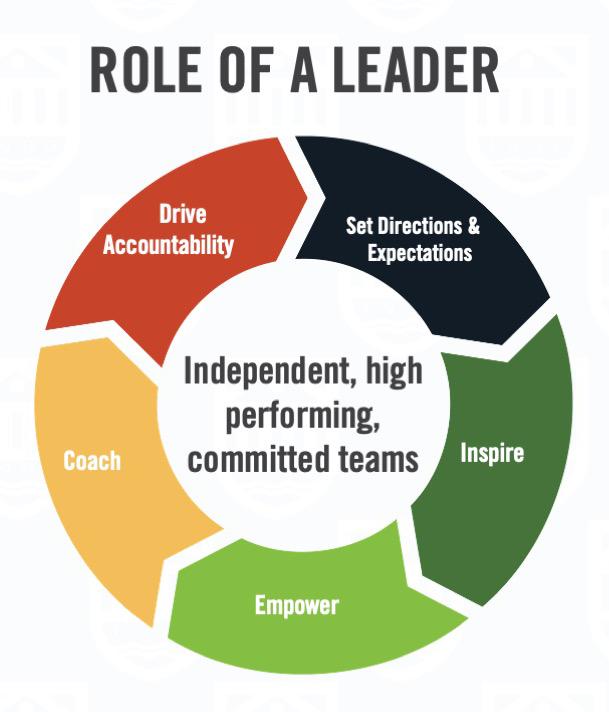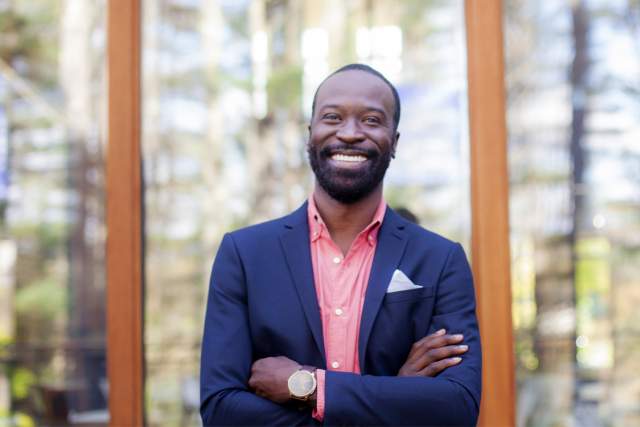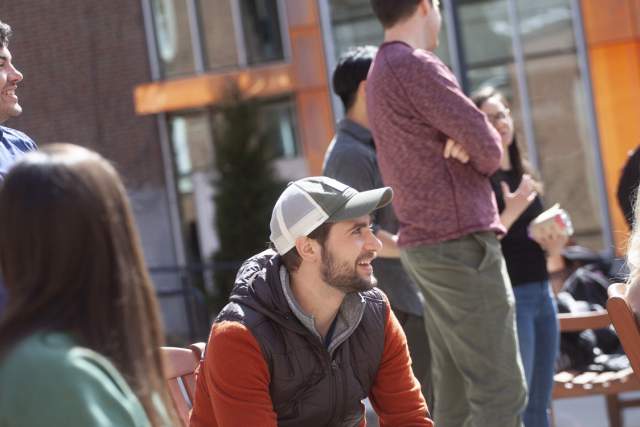The full-day event was held on consecutive days with 16 students participating on Saturday and another group of 16 on Sunday. After a successful pilot last year, the inaugural Lenhardt Leadership Challenge was made possible through an endowed gift by Dawn and David Lenhardt T’96, former CEO of PetSmart.
“One thing I’ve learned throughout my career is that leadership is a contact sport,” says David Lenhardt, who attended both days of the challenge in May. “It is a lifelong endeavor that is shaped by experience—a continuous cycle of doing, practicing, and adjusting. We hope this program makes leadership training concrete for students and creates a forum for honest feedback and reflection.”
Lenhardt’s own leadership career spans more than two decades, including 14 years at PetSmart, first as senior vice president of services and strategic planning, and later, CEO. He began his career as a financial analyst at Merrill Lynch and also spent more than four years as a management consultant at Bain & Company.

1. Set Directions and Expectations
2. Inspire
3. Empower
4. Coach
5. Drive Accountability
These experiences inform “The Role of a Leader” framework, which provides the theoretical foundation of the Lenhardt Leadership Challenge. The framework describes a set of five leadership objectives that work together to create independent, high performing, and committed teams.
Both days began with a discussion on the framework followed by the series of adventure challenges, which were coordinated by Ursa Major Northeast Guides—a trio of retired Army and Air Force colonels. After every challenge, teams conducted After-Action Reviews, or debriefs, that allowed participants to reflect on their individual and group performance with the goal of helping each student enhance their leadership skills.
“I was reminded of how important authenticity is to leadership. For teams to function well, feedback must be honest and direct,” says Ryan Monagle T’23. “The debrief sessions reinforced my desire to seek out companies and people who possess that type of candor and transparency.”

